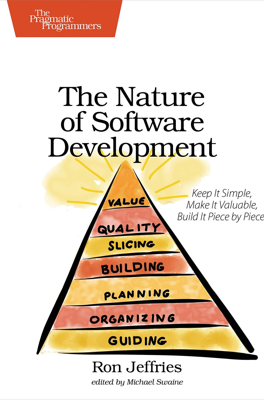Value—What Is It?
Defining Value in Agile Development
Value Simplified: In Agile development, "value" is foundational, guiding decisions on task prioritization—doing higher value tasks sooner, and lower value ones later. Ron's definition is straightforward yet profound: Value is "what you want."
Quality and Value Connection: Drawing inspiration from _Zen and the Art of Motorcycle Maintenance_, Ron correlates quality with personal preference, suggesting "Quality is what you like," thereby aligning it closely with how value is perceived.
Diverse Interpretations of Value: The concept of value extends beyond mere monetary value: - Business and Customer Value: Often considered in decisions, focusing on benefits for business health or customer satisfaction. - Strategic Value: Making decisions based on strategic needs like gaining market information or securing capital for continuity. - Humanitarian Value: Prioritizing features that might save lives or improve wellbeing. - Operational Value: Enhancing product speed or cleaning up software to ensure quicker progress reflects operational value considerations. - Personal and Emotional Value: Facets like joy, happiness, and human connections also influence value judgments.
Crucial Role of Decision-Makers: The job of a Product Owner or management entails scrutinizing these varied values to sequence development effectively, aiming to optimize returns on invested resources.
Challenges of Defining Value: While simplifications like equating value to short-term revenue or aligning it with a senior executive's wishes might suffice in some contexts, Ron argues these are generally inadequate. A holistic understanding and deep consideration of what truly matters—across a spectrum of possible values—are essential for sustainable success.
In essence, defining and prioritizing based on value means making informed choices about what matters most in the given context.
